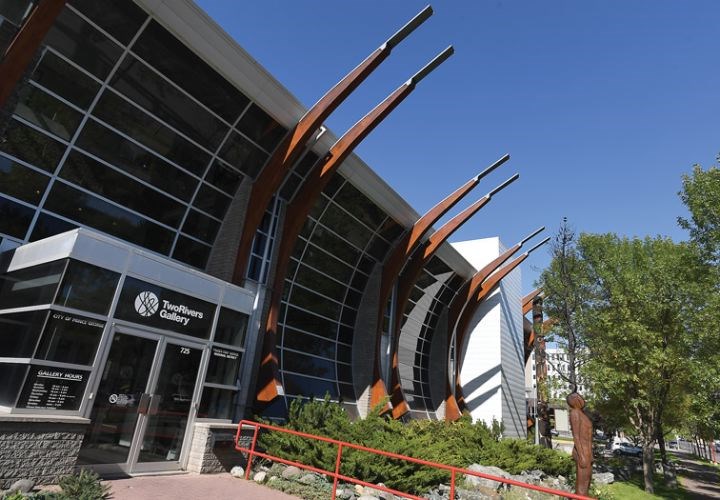Reconciliation.
The Two Rivers Gallery is calling for the Aboriginal artists of B.C. to submit whatever art they wish to create with this term - Reconciliation - as the central theme.
It might be the most important word in Canada at the moment. It might be the word that one day defines this era in Canadian culture.
It is a word entirely derived from the past eras of Canadian history, now branded with less progressive words like "colonialism" due to the turning of the tide from mutually agreeing to share the land but becoming instead an assumption of cultural dominance by a bully state.
That assumption was not benign. It came with violent and prejudicial practices on a widespread basis. All across Canada, for hundreds of distinct Aboriginal cultures, the incoming Europeans carried out hostile acts like land appropriation, bans on traditional cultural practices and governance systems, outlawing the right for Canada's first peoples to be educated in the manner of their choice or to even retain lawyers to represent their interests, the wholesale taking of natural resources without permission or payment, forced adherence to doctrines like the Indian Act and worst of all the attempted cultural genocide carried out by the residential school system.
In many cases, no occupation treaties were signed with First Nations (this persists today, including most of northern B.C.), and where treaties were signed, there was little legal fairness in the agreements and innumerable breaches of those treaties since then.
It added up to a systematic attempt, First Nation by First Nation, to impoverish and thereby force-assimilate people into a foreign culture they once welcomed and shared. Whatever good came with it - universities, hospitals, utilities, etc. - came at the point of a gun, although few armed conflicts were ever a part of the growing imbalances of power.
In modern times, non-Aboriginal Canadians are in the process of recognizing those transgressions and trying to help instead of hurt. Modern Canadians were born into these conditions, were not the perpetrators of original colonialism, but benefit daily from it and are in a position to now awaken to the imbalances of the past and choose what new paths to take for a shared future.
To that end, recent court cases have been halting colonial practices, various levels of government have been sharing revenues and insisting on private-sector relationships with whichever First Nations on whose territory they wish to do business, and initiatives like the Truth and Reconciliation Commission ordered into action.
"The exhibition Reconciliation really emerged out of a talk I happened to hear a number of years ago by Murray Sinclair, chair of the Truth and Reconciliation Commission," said George Harris, curator of the city's premier art gallery. "It was a very moving talk, and he challenged museums and galleries to play a role in that process of reconciliation. I resolved that we should do that at Two Rivers Gallery."
The deadline for artists to apply for a spot in the show is Sunday.
Those who do submit work that is inspired by or speaks to the word Reconciliation will be included in the group exhibition scheduled to open in July. The works will be selected and set for display by Harris and special guest curator Rose Spahan, a Salish artist and curator based in Victoria.
"I'm quite confident that everybody's going to have a different interpretation and different view of what Reconciliation means to them," Harris said, for the potential of the show. "The theme of the call for submissions will no doubt direct people's responses in one way or another, but the bottom line is, this theme of Reconciliation relates to other policies, to the history of colonialism, it relates to the period in which residential schools existed, it certainly relates to the impact it has had on individuals but also upon families and communities and languages and culture that continue to have long-standing and tremendously important consequential impacts."
This exhibition is aimed at promoting healing and shedding light on the human costs colonialism has inflicted, but it is also about inspiration and education.
"I think there are a lot of non-Indigenous people out there, still, who have very little idea of the impact this has had on countless people, so it seemed to me that this exhibition was really a very important way of hearing the voices of the people affected by these policies," said Harris.
Any B.C. Indigenous artist with work to potentially contribute to the Reconciliation show is asked to contact Harris as soon as possible by emailing [email protected] or phoning him at 250-614-7800.



